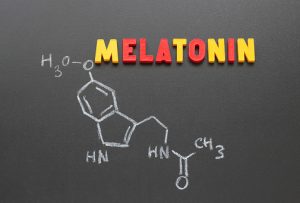 Using environmental observations researchers have found melatonin levels may play a role in multiple sclerosis (MS) relapse risk. As an autoimmune disease multiple sclerosis involves environmental and genetic factors. Researchers aimed to better understand those environmental factors which may affect a multiple sclerosis relapse.
Using environmental observations researchers have found melatonin levels may play a role in multiple sclerosis (MS) relapse risk. As an autoimmune disease multiple sclerosis involves environmental and genetic factors. Researchers aimed to better understand those environmental factors which may affect a multiple sclerosis relapse.
Researchers studied patients with multiple sclerosis; they uncovered that during the fall and winter months patients saw significant improvements in symptoms. This probed the researchers to further explore what in their environments could contribute to this improvement in MS symptoms. Vitamin D levels, UV incidence and upper respiratory tract infections were all explored. What remained consistent among most patients was melatonin, which has been shown to correlate with how long days are – in the spring and summer they are longer, while in the fall and winter they are shorter.
Advertisement
In a lab setting researchers tested melatonin on a cell level in both mouse and human models. The found melatonin affects two types of cells which play a role in the immune response in MS. Researcher Francisco Quintana said, “We found that melatonin has a protective effect. It dampens the immune response and helps keep the bad guys – or pathogenic T-cells – at bay.”
Melatonin supplements can lead to intense drowsiness and are often used as a sleep aid. However, it is not advised to simply start supplementing with melatonin during daylight hours because it can affect your wakefulness. The research team’s goal is to find a way to use melatonin without the unwanted side effects.
Multiple sclerosis relapse causes and risks
 A multiple sclerosis relapse can have a variety of interpretations based on the individual. As a baseline we will go with the definition which means old symptoms of MS worsen, new symptoms appear, symptoms last a minimum of 24 hours, symptoms last for at least 30 days after the previous relapse, and there are no other underlying causes for the symptoms.
A multiple sclerosis relapse can have a variety of interpretations based on the individual. As a baseline we will go with the definition which means old symptoms of MS worsen, new symptoms appear, symptoms last a minimum of 24 hours, symptoms last for at least 30 days after the previous relapse, and there are no other underlying causes for the symptoms.
Nearly 85 percent of individuals with MS will experience a relapse. A relapse occurs after a period of partial or complete recovery. But what exactly causes a relapse? Well, there are a few different causes, including:
- Infection
- Vaccination
- Postpartum
- Stress
- Lack of vitamin D
- Heat
- Fatigue
MS relapses are unexpected but treatable. The goal of treatment for a MS relapse is to shorten the relapse and speed up recovery. A few different types of treatment for a MS relapse are intravenous and oral steroid, plasma exchange and intravenous immunoglobulin. These treatments do have many side effects, so speak with your doctor about the best mode of treatment for you.
Tips to prevent a MS relapse involve reducing the risk of infection, checking with certain vaccines, reduce stress, get adequate vitamin D, minimize time in the heat and get quality sleep to reduce fatigue. By combating these causes of a relapse you can lower you risk of experiencing one.
Related Reading:
Link between low vitamin D and multiple sclerosis found
Advertisement
Research has uncovered a link between having low vitamin D and the development of multiple sclerosis. Sometimes called the ‘sunshine vitamin’ because most people get their daily vitamin D from exposing their skin to the sun. It seems only logical that previous research shows that cases of multiple sclerosis are higher in countries which experience the least amount of sunlight. Continue reading…
Salt intake may increase risk of multiple sclerosis
New research from the University of Vermont suggests that in mice models, salt intake may increase the risk of developing multiple sclerosis (MS). With the use of three genetically different groups of mice, researchers conducted their study. Continue reading…
Sources:
http://www.sciencedaily.com/releases/2015/09
http://www.brighamandwomens.org/about_bwh/publicaffairs/news/PressReleases
http://www.rethinkmsrelapses.com/pages/manage_ms_relapses/how_are_relapses_treated
http://www.empowher.com/multiple-sclerosis/content/multiple-sclerosis-7-things-can-cause-relapses
http://www.everydayhealth.com/hs/living-better-with-ms-guide/triggers-that-can-cause-ms-flares
